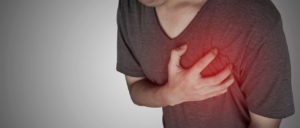 The term, cardiovascular disease refers to diseases of the heart and blood vessels and includes angina, heart attack, diseases of the heart valves or heart muscle, heart failure, stroke and pain from poor blood flow to the legs. Cardiovascular disease (CVD) is the nation’s leading killer of both men and women among all racial and ethnic groups. Close to 1 million Americans die of Cardiovascular Disease each year, accounting for 42 percent of all deaths. Heart disease affects not only the elderly – it is the leading cause of death for all Americans age 35 and older.
The term, cardiovascular disease refers to diseases of the heart and blood vessels and includes angina, heart attack, diseases of the heart valves or heart muscle, heart failure, stroke and pain from poor blood flow to the legs. Cardiovascular disease (CVD) is the nation’s leading killer of both men and women among all racial and ethnic groups. Close to 1 million Americans die of Cardiovascular Disease each year, accounting for 42 percent of all deaths. Heart disease affects not only the elderly – it is the leading cause of death for all Americans age 35 and older.
The Development of Cardiovascular Disease
Heart conditions often exist without pain or obvious symptoms, which means they often go untreated. This can lead to even more serious health issues, including heart attack, stroke and kidney damage. What is especially dangerous about cardiovascular disease is that someone may have more than one condition at the same time without even knowing it.
Many risk factors contribute to the hardening and constriction of the veins and arteries leading to the heart and the brain. Three of the main factors are tobacco use, lack of physical activity and poor nutrition. Smokers have twice the risk of heart attack as nonsmokers. People who are sedentary have twice the risk of heart disease as those who are physically active. Surveys show that more than half of American adults do not practice the recommended level of physical activity. Between 20 to 30 percent of American adults are obese and have a much higher risk for heart disease, high blood pressure and high cholesterol. Additional risk factors include family history, stress, infections and heavy metals toxicity.
Symptoms of Heart Disease
Heart Disease may exist with no obvious symptoms or pain. When symptoms are present, they vary depending on the extent to which the normal flow of blood to the affected organ is interrupted. When the interruption of blood supply to the brain or heart is severe, some or all of the following symptoms can be experienced. Heart attack symptoms include central chest pain with an oppressive or squeezing feeling that lasts for few minutes; chest pain that can spread to the neck, shoulders and/or arms; and chest discomfort, along with light-headedness, sweating, faintness, nausea or shortness of breath.
At Sunridge Medical, our highly-trained physicians are experts in providing an integrated approach to the treatment of cancer and chronic disease. Our treatment plans are individualized, and involve both traditional and alternative medicines. We have found that symptoms frequently can be improved and even reversed with our natural treatments. We take a holistic approach to patient care and strive not only treat the disease, but also alleviate symptoms, increase quality of life and, most importantly, address the underlying cause of disease.
References on Cardiovascular Disease
To speak with a Patient Care Team
call us toll-free at 800-923-7878 .
Recover your vitality, reclaim your energy and rediscover your health.


